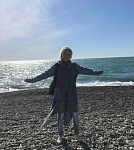Cyprus is one of the most picturesque islands in the Mediterranean Sea. It is located at the crossroads of Europe, Asia and the Middle East and is extremely attractive for travellers of all kinds.
Geography
The resort island can be reached from mainland Europe in approximately 1.5 hours. Cyprus is a true paradise by any global standards: winters are mild, with temperatures ranging from +15 to +20°C, while summers are long, dry and hot, often reaching +35°C or higher during the day. The swimming season lasts from April to November, but some people come to the beach to swim even in winter, so tours are also in demand at this time. Hotels provide a comfortable stay by the sea, but you can also visit the island of Aphrodite on your own. Since 1974, Cyprus has been divided into two territories: the southern part, which is the Republic of Cyprus, and the northern part, which is the self-proclaimed Turkish Republic of Northern Cyprus, recognised only by Turkey. Even the island's capital, Nicosia, is divided into two parts, with a border between them located approximately in the middle and strictly guarded. It is important for tourists to know this so as not to violate the country's laws. The main international airports are located in Larnaca and Paphos, from where it is easy to reach any resort and hotel.
Note: The country's major cities are Paphos, Larnaca, Limassol and the ‘half’ of the capital, Nicosia. This is where the most luxurious hotels with excellent service and all the infrastructure for everyday life and leisure are located.
On the southern side, the official and main language is Greek, but many people speak English fluently, which is considered the unofficial second language. There are many Russian-speaking people living in Limassol. This makes it easier for tourists to communicate with the locals.
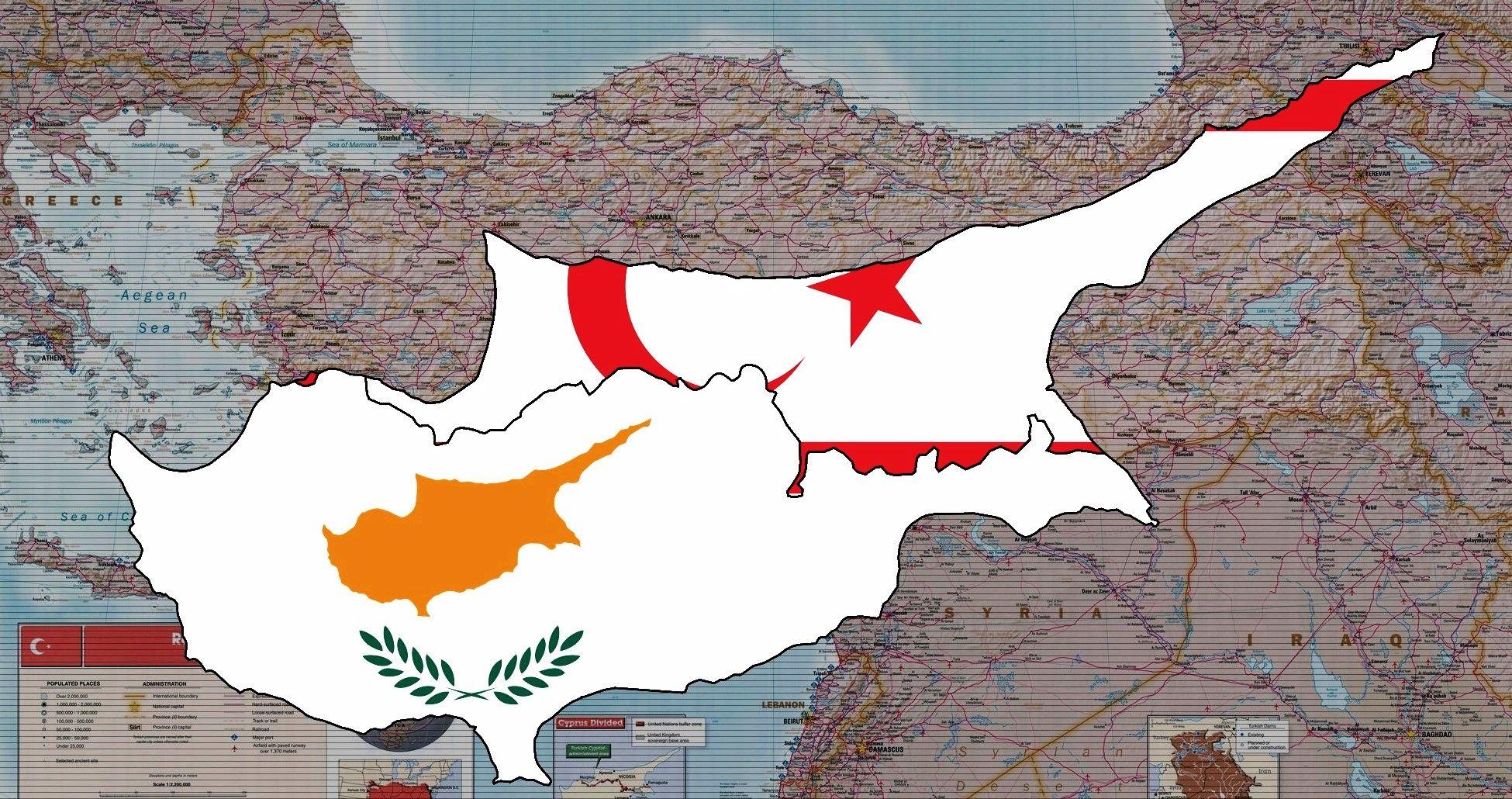
Currency and prices
Cyprus does not have its own currency: the euro is used here, as in the rest of Europe. It is best to exchange currency in advance (at a bank in your country) and arrive on the island with cash: street markets, small cafes and some tours prefer cash payments, and you will not be able to pay with a Russian card here. ATMs and banks are located in cities, but not always in small villages and remote resorts. It is also difficult to exchange foreign currency in hotels. Food prices are quite reasonable for the high quality of the food. Lunch in a café near the beach, the sea and in general in a resort area will cost 12-20 euros, dinner in a good restaurant — 40-60 euros for two. Delicious street food such as gyros or souvlaki costs around €5 in beach locations.
Tip: you will hardly find a buffet in hotels in Cyprus. It is best not to choose an all-inclusive package, but only breakfast, so that you can plan your lunches and dinners at charming Cypriot taverns.
The average cost of accommodation in standard hotels is €60-100 per night during peak season, and €120 and above in coastal areas and popular resorts. In general, it all depends on their location, and it is best to find out in advance. Sightseeing tours cost between €30 and €70 on average, unless they involve particularly expensive equipment.
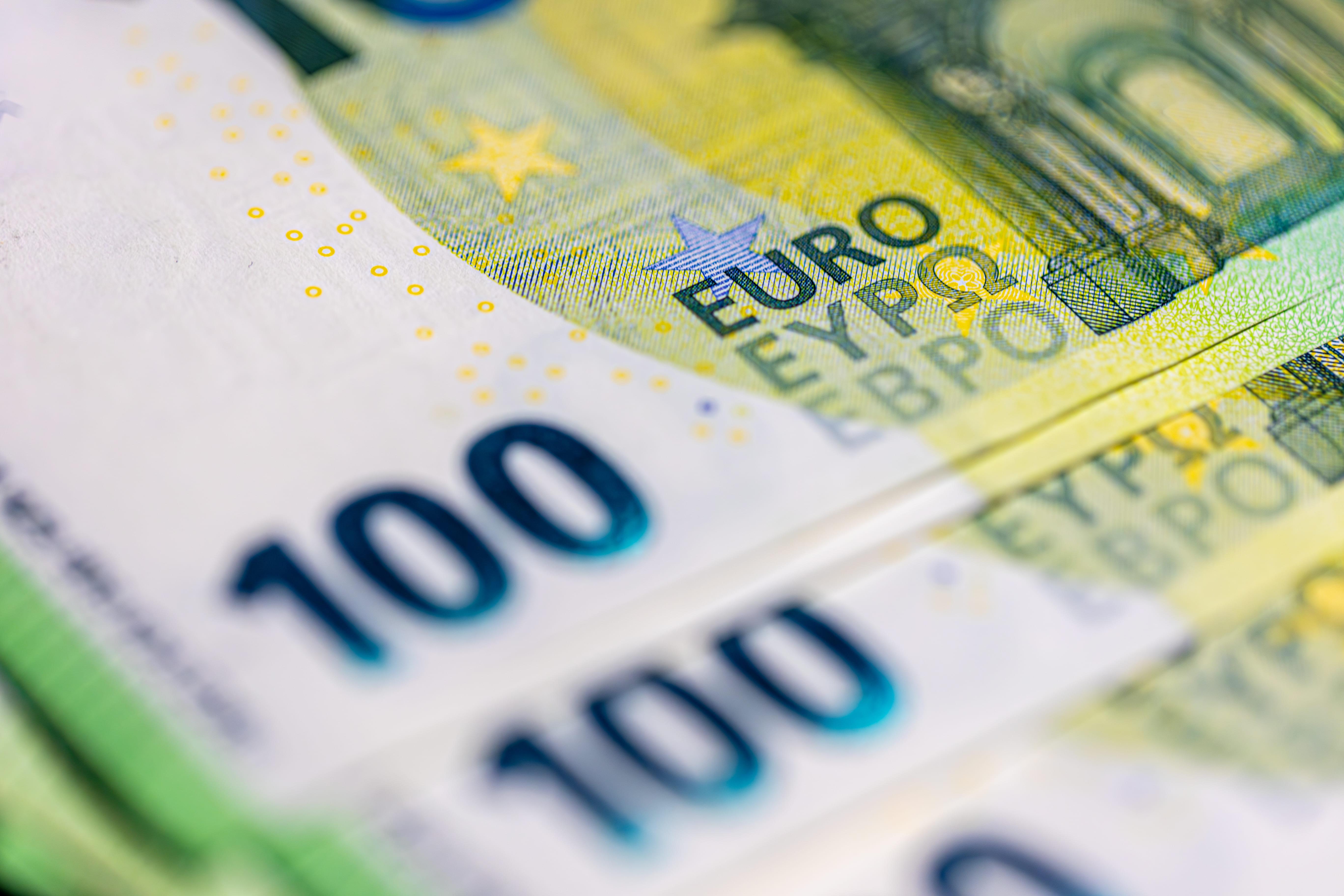
Top attractions
It is important to know that Cyprus, in addition to its beautiful sandy beaches and resort atmosphere, is rich in architectural and natural heritage. Among the religious sites, the monasteries stand out: Kykkos is one of the oldest and richest on the island, Macheras (not far from the capital) is located in picturesque mountains, and Stavrovouni is one of the highest, with panoramic views. Each of them is more than 8 centuries old.
Cyprus' nature delights tourists not only with its seascapes, coastline and luxurious beaches (both sandy and pebble), but also with its waterfalls. Among the most popular are Caledonia, Millomeris and Hantara. All of them are located in the Troodos area and are accessible for walks along equipped trails and picnics, some even for children.Be sure to visit Cape Greco (on the eastern part of the island, not far from Ayia Napa), which offers views of the azure sea and stunning beaches, and the Akamas Peninsula (in the north-western part of the island, in the Paphos area) with its nature reserve, hiking trails and, below, Aphrodite's Bay. These popular destinations can be visited on a tour if you are unable to rent a car.
Paphos has impressive ancient ruins, including an archaeological park with Roman mosaics and the Tombs of the Kings, which are a must-see. In Limassol, the medieval castle and the seafront promenade with an art park and eucalyptus grove are interesting. In Larnaca, pay attention to the Church of Saint Lazarus, the old aqueduct and the famous salt lake — this is where you can see flamingos in winter.
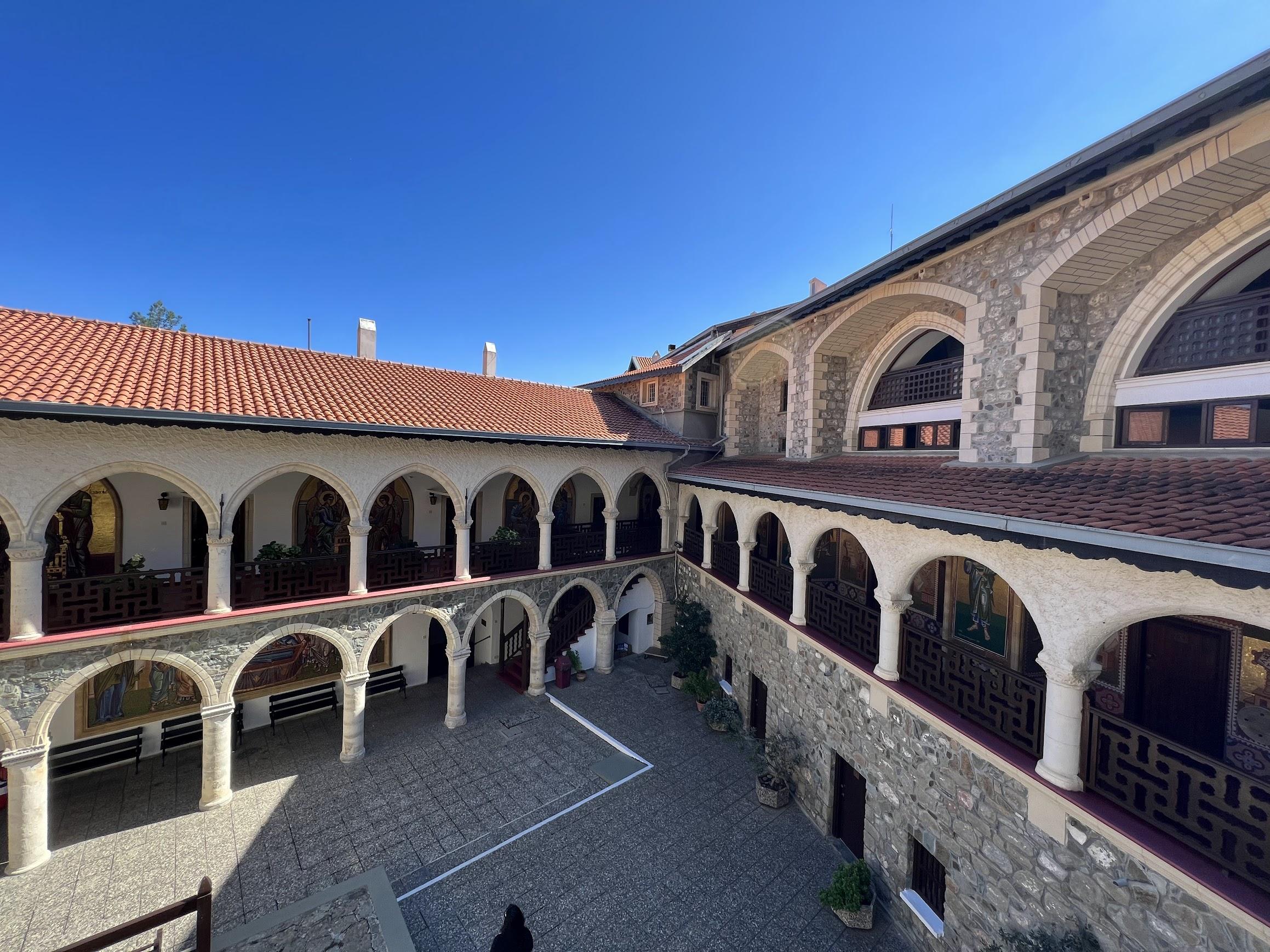
Best beaches in Cyprus
The island is famous for its magnificent beaches. Some of the most famous are:
- Sandy Nissi Beach in Ayia Napa with turquoise waters, a favourite spot for photo shoots.
- Fig Tree Bay in Protaras (near Ayia Napa) is a quiet family beach with a gentle sandy entrance, ideal for swimming with small children.
- Coral Bay in Paphos combines popularity and comfortable infrastructure.
- Mackenzie Beach in Larnaca is a spacious sandy beach near the airport, where planes fly literally overhead.
- Governor's Beach in the Limassol area (near the border with Larnaca) is famous for its white cliffs and contrasting black rocks by the water, which are especially picturesque in the evening.
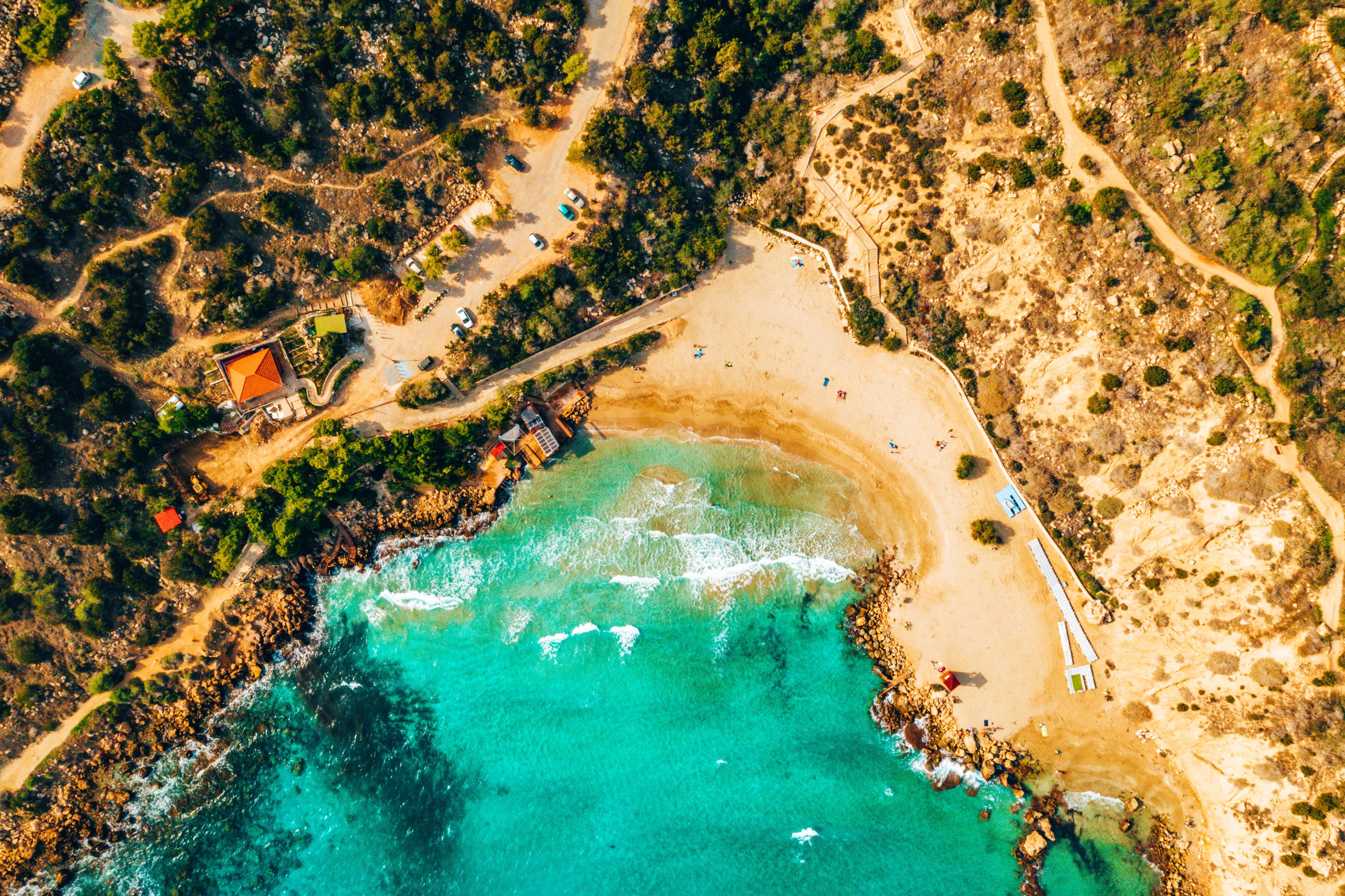
Airports in Cyprus
Cyprus's airports play a key role in the country's transportation infrastructure by providing an air gateway for tourists and business travelers. The main international hubs are Larnaca Airport in the southeast and Paphos Airport in the west. Both airports have modern terminals, efficient logistics systems, and high-quality service. They offer direct flights to dozens of countries in Europe, the Middle East, and North Africa. The airports serve as important economic centers that promote tourism and international trade, functioning not only as points of arrival. Their ongoing modernization, the introduction of green technologies, and the expansion of their route networks make Cyprus an increasingly attractive and accessible destination on the global aviation map.
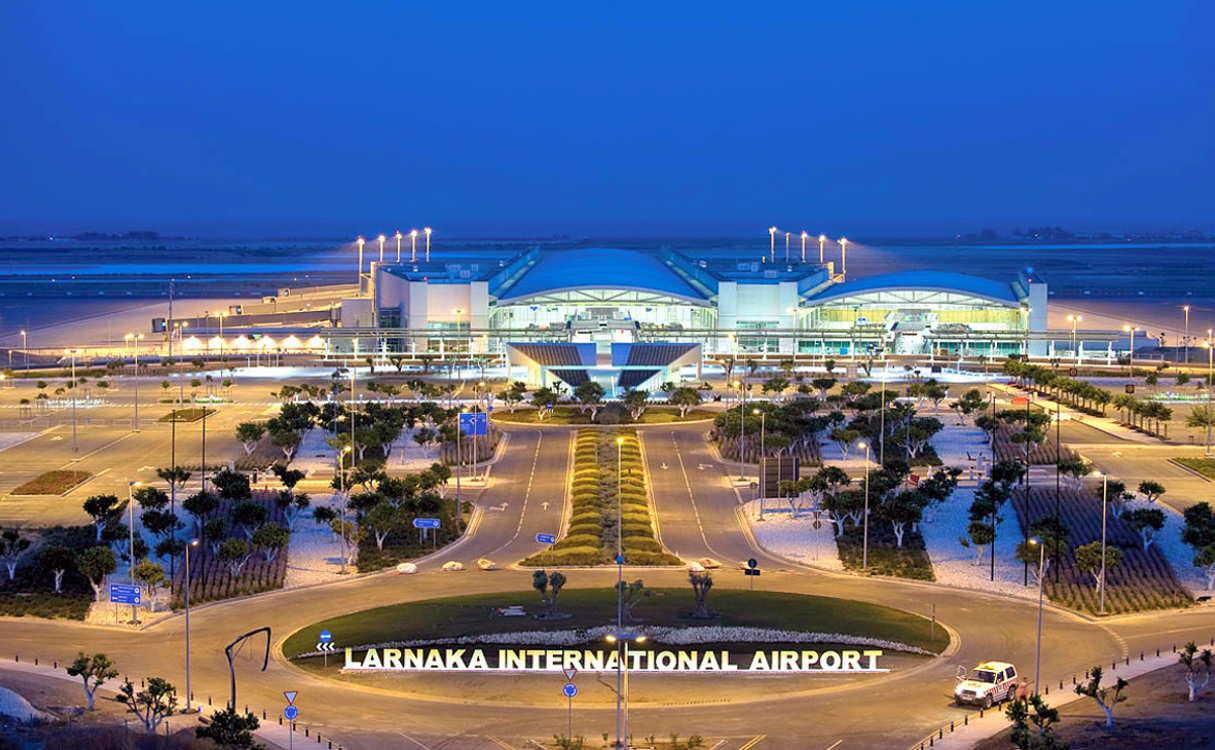 Transport
Transport
Public transport on the island consists only of buses. Bus service is reliable in large cities, but most intercity routes run infrequently, especially in the evenings and on weekends. You can find timetables online or at the final stops. Taxis are available, but prices are even higher than the European average and some other countries. A trip around the city costs around €10–15, and between resorts (for example, between Larnaca and Ayia Napa, Limassol or Paphos) — from €30 and above. The most convenient way to get around (especially to remote beaches and attractions) is to rent a car. Rental costs from €15 per day. Keep in mind that Cyprus has left-hand traffic, although foreigners quickly get used to it. The roads are good, signs are duplicated in English, there are almost no traffic jams outside cities and resorts, and it is easy to find the right place on the map.
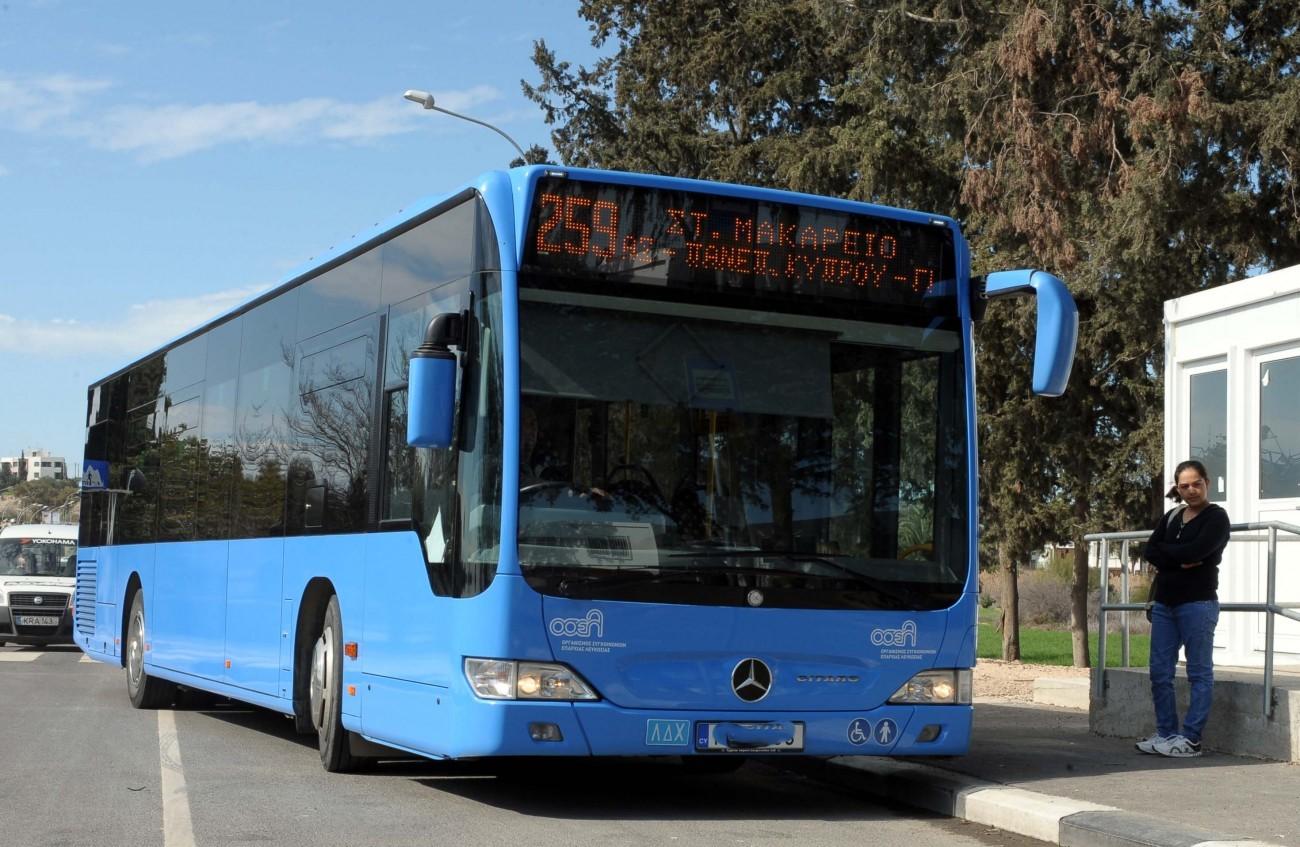
Cuisine and wine
Cypriot cuisine combines Greek, Middle Eastern and Turkish traditions. Classic dishes include meze (a selection of 10-20 appetisers), kleftiko (braised lamb), sheftalia (sausages), halloumi (fried cheese) and khtafodi krasato (stewed octopus). Coastal restaurants often serve fresh seafood and delicious fish. Local wines deserve special attention. Wine production in Cyprus dates back thousands of years. Dry red wines are popular, including the famous dessert wine Commandaria. Young white wines from the Xynisteri grape variety are also good. In every town, you can find a cosy tavern with wine tasting, which is run as a family business. Outside of the national cuisine, among the fruits, you should try prickly pear (cactus pear), medlar, feijoa, figs, pears, oranges and pomegranates. In summer, fresh watermelons, melons and peaches are sold. All of this is available at reasonable prices in the markets.
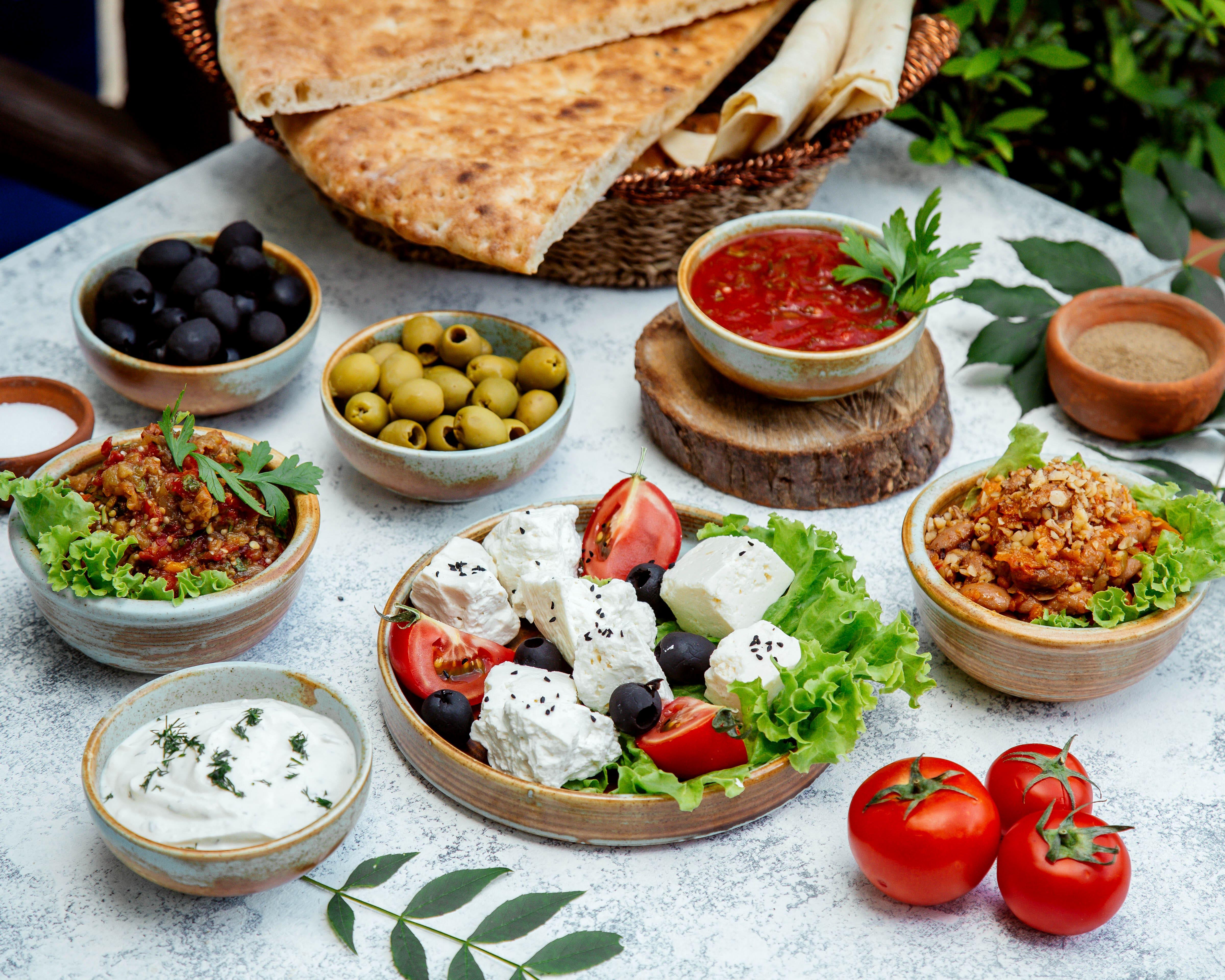
Animals
One of the peculiarities of Cyprus is the love of animals among most of the indigenous people, especially cats. According to legend, it was cats that saved the island from the domination of snakes, and since then the locals have protected them. Cats are everywhere — at monasteries, in cafes, on city streets, and in parks. They are well-groomed, often neutered and fed — they are cared for by both locals and tourists. Donkeys are also an important part of Cypriot culture. In villages, they are still used for farming. There are donkey farms on the island (for example, there is a large one near Limassol) where you can take a tour, interact with the animals, feed them, and buy natural cosmetics made from donkey milk.
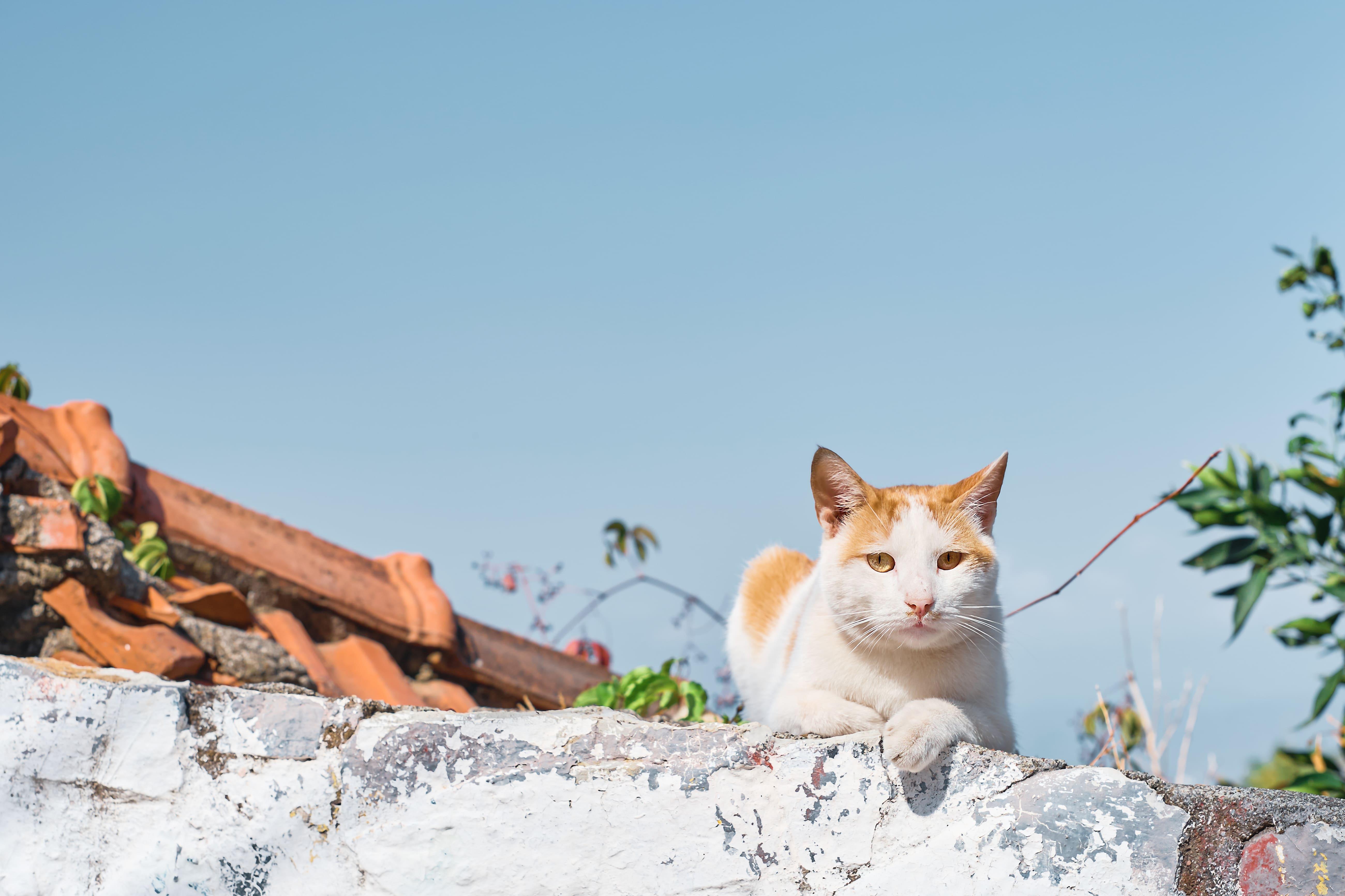
Visa and insurance: how to get to Cyprus
Previously, British citizens could obtain a pro-visa, which allowed them to travel outside of organised tours, but this has now been cancelled. Therefore, to get to the southern part of Cyprus, you now need to apply for a national visa of the Republic of Cyprus or a visa of any European country or European Union member state (single-entry, double-entry, or multi-entry visas are acceptable). Documents can be submitted at visa centres: this will require a hotel reservation, a return flight ticket, confirmation of funds in a bank account, and medical insurance for at least €30,000. It is much easier to obtain a visa when booking a package tour — at least for now.
Tip: you can stay in hotels in these cities and spend 1-2 nights there to see the sights and go on excursions.
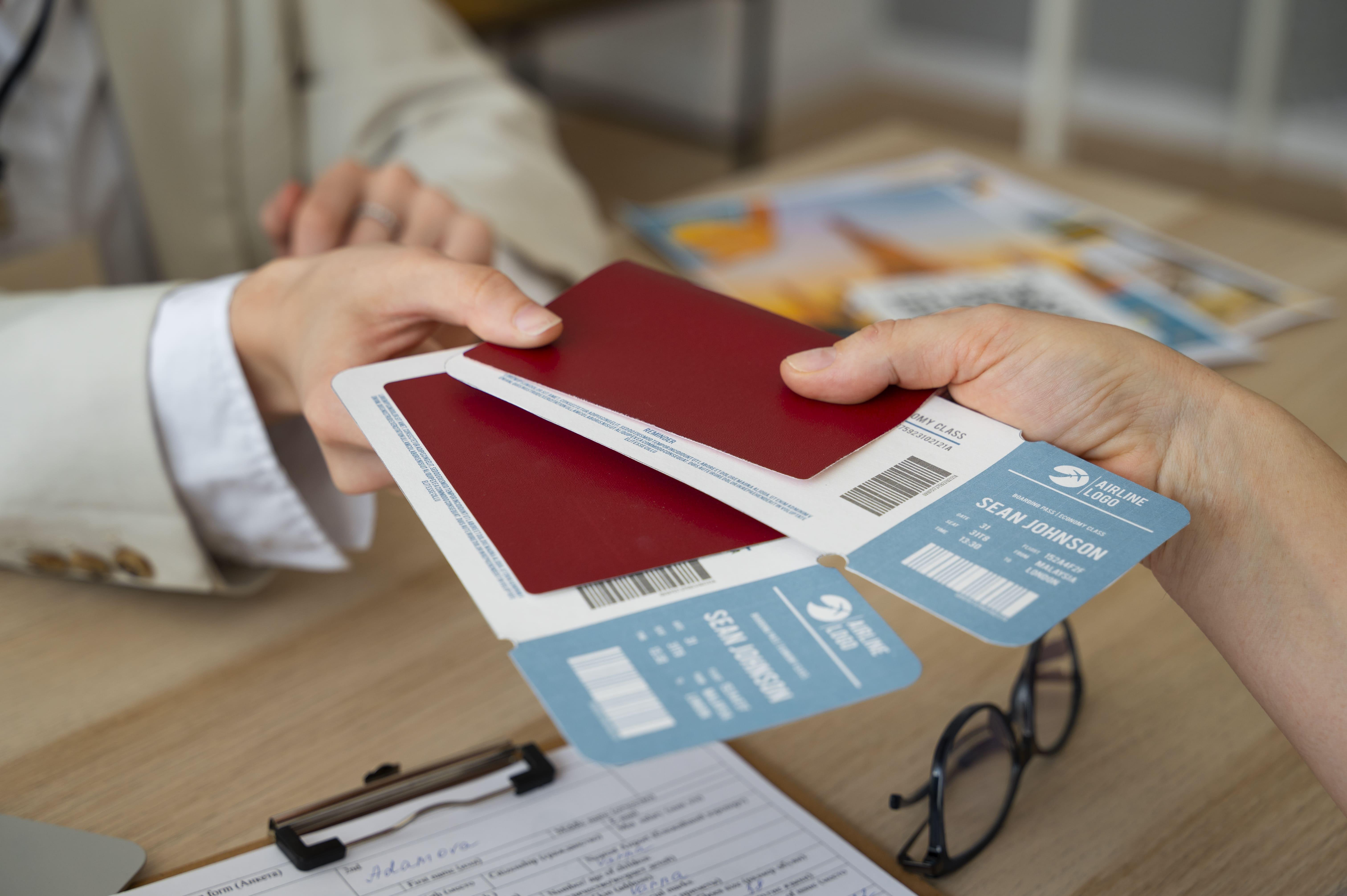
Local mentality and traditions
Cypriots are known for their hospitality, openness and relaxed pace of life. They value family and enjoy spending time with friends, chatting and eating good food. Tourists are welcomed warmly, people are happy to help you find your way around and invite you to local festivals and celebrations. In large hotels, you can often find Russian-speaking staff. Cypriots drive everywhere, and every member of the family has their own car. They also love small children and spoil them in every way possible. They even have time for cats. Traditions, including religious ones, are respected in Cyprus. Many villages hold festivals dedicated to the harvest or certain dishes. The wine festivals in Limassol and the rural fairs with national dances are particularly colourful.
Tip: locals really like it when tourists try to speak their native language. Therefore, ‘efharisto’ (‘thank you’) and “parakalo” (‘please’) can work wonders!
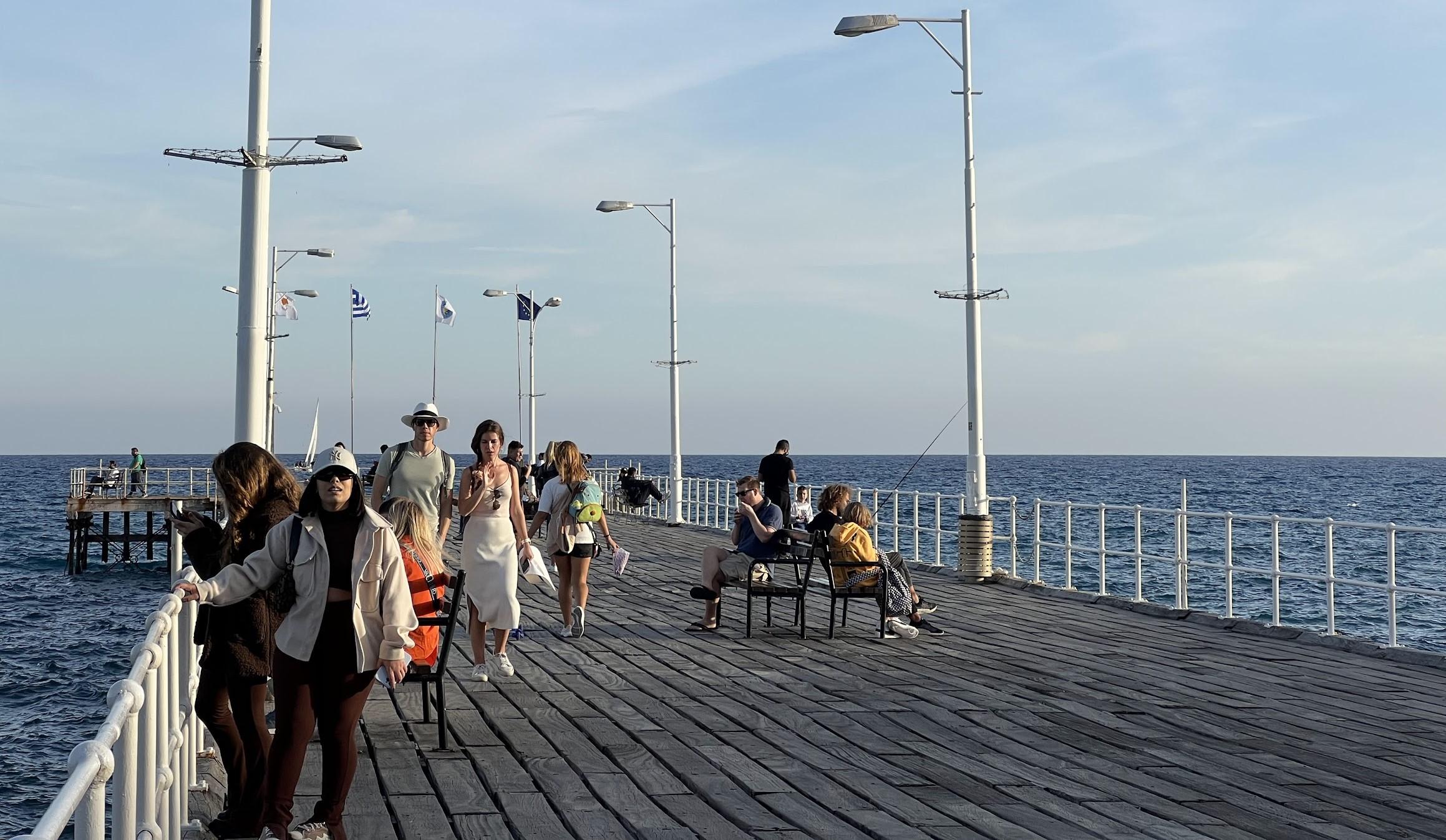
Mobile communications, internet and power sockets
You can buy SIM cards from local operators — Cytamobile, Epic and PrimeTel — on the island. They offer great deals on internet and calls. You can buy a SIM card at airports, shopping centres and supermarkets. The connection is fairly simple and quick, but you will need your passport to purchase a SIM card.
Tip: SIM cards are more expensive at the airport, beach locations and hotels than in city shops.
Cyprus uses British sockets with three flat pins, so standard plugs will not fit. You will need to bring an adapter with you — they are not always available in hotels, especially smaller ones. Ideally, contact the hotel staff before your trip to clarify this point. You can also buy them in shops, but it is better to be prepared in advance.

Read also:

